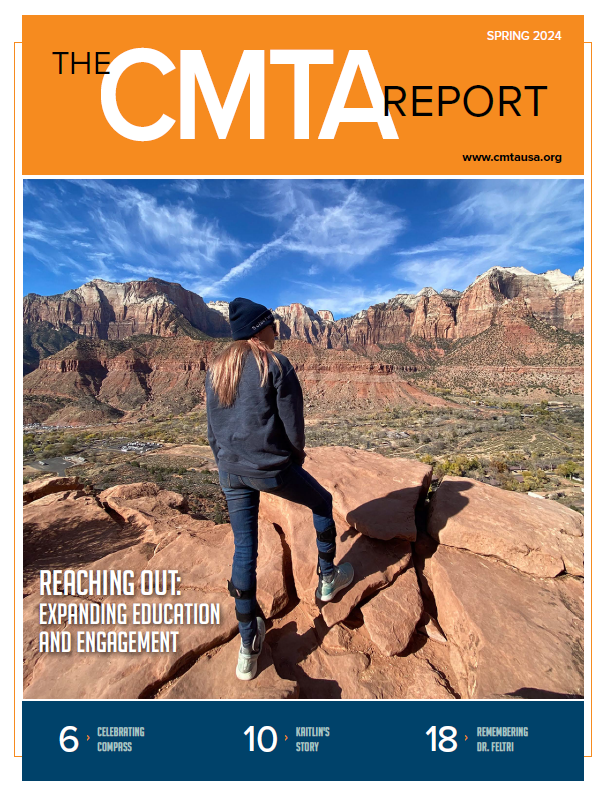Sue Bruhn, the CEO of CMTA, expresses gratitude and excitement for the upcoming year and highlights the achievements and initiatives of the organization.
The organization is community-led and community-driven, with decisions guided by the needs and priorities of the community.
Exciting opportunities for the community in 2024 include informative webinars, local meetings, and a Patient and Research Summit.
Sue expresses gratitude to the community for their courage, resilience, and commitment.
The CMTA’s community-led outreach efforts in 2023 included successful youth programs, expanding branches, and educational initiatives.
Camp Footprint had a great turnout with 61 campers in the west and 80 campers in the east.
Youth programs membership grew from 261 to 323, showing an expanding reach.
Centers of Excellence CMT clinic network added five new centers, bringing the total to 55.
Norm Krupp’s life story of resilience, perseverance, and overcoming adversity with CMT, leading to successful hand surgery.
Norm Krupp was diagnosed with juvenile diabetes at the age of 7, which marked the beginning of his lifelong journey with health struggles.
Norm’s successful hand surgery enabled him to regain the ability to perform tasks and hobbies that had become impossible.
Norm’s journey serves as a beacon of hope, inspiring others with his courage, strength, and relentless drive.
The Siegel family, affected by CMT and FSGS-5, undergoes surgeries and kidney transplants to improve their health.
Kaitlin Siegel, at 15 years old, faces kidney failure and undergoes major surgery.
Jennifer Siegel, Ken’s wife, discovers a connection between CMT and FSGS and finds that Ken and Kaitlin both have the INF2 gene mutation.
Kaitlin undergoes foot surgeries and later a kidney transplant, with her mother as the donor.
Katherine Forsey, Ph.D., CMTA Chief Research Officer, discusses MRI Fat Fraction as a Biomarker in CMT.
An innovative MRI protocol accurately measures fat levels in lower limb muscles, providing a non-invasive and objective approach to track Charcot-Marie-Tooth disease (CMT) progression.
Patient-friendly, objective, reproducible, and quantifiable, this technique offers a clear indication of disease progression, potentially reducing the length and cost of clinical trials.
Highly responsive over 12 months, MRI Calf Fat-Fraction could significantly impact the design of future CMT clinical trials, offering a valuable tool to advance research in the field.






